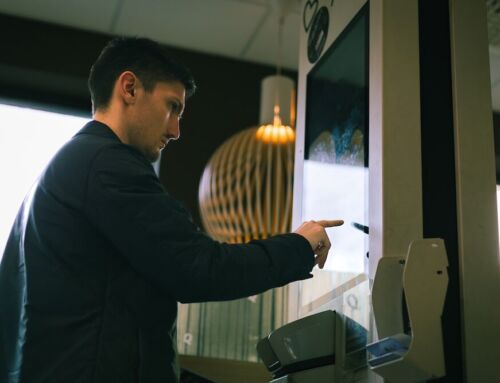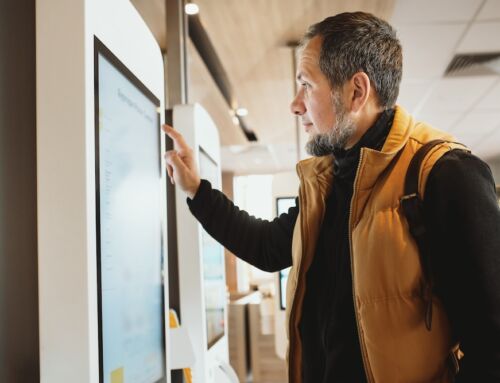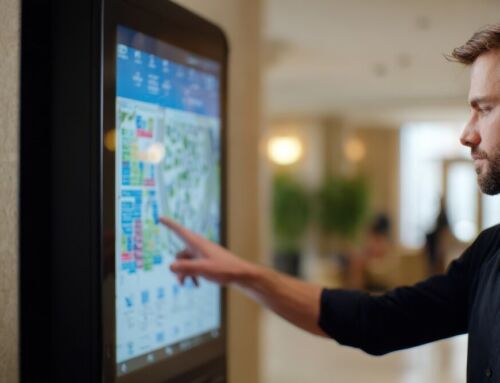With the COP27 summit in November 2022, the increasingly urgent need to tackle climate change was once again been at the top of the news agenda.
But the truth is, for individuals and businesses alike, this is no longer an issue anyone can afford to put on the backburner even when it’s not making headlines. Effective action in preventing a climate catastrophe will only happen if everyone pitches in, day in, day out.
Like thousands of other businesses, here at Acante we take this responsibility seriously. How we can support the transition to a greener, more sustainable world is now front and centre of our strategy. And that includes thinking creatively about how the products we specialise in – kiosks – can be put to good use helping people make more eco-friendly choices.
Self-service kiosks are already being deployed in ways that help the fight against climate change. Here are some of our favourites.
Tech recycling points
Few of us could do without our electronic gadgets these days. But they come at a cost to the environment. So-called e-waste – waste from discarded gadgets – is a major problem, with around 40 million tons going to landfill every year. What’s worse, electronic devices contain toxic substances which then pollute the earth.
Rather than being thrown away, devices like smartphones, tablets and laptops can be recycled, either by being reconditioned and sold second hand or having their components re-used in brand new models. The main barrier to more devices being recycled is a shortage of convenient recycling points and trade-in options.
Kiosks are being deployed to provide a solution. Last year, the Co-Op rolled out ‘buy-back kiosks’ in 20 of its London stores, where people can not only drop off their old gadgets but get paid for them, too. Similarly, pre-owned gadget retailer MusicMagpie has installed SMARTDrop kiosks in 290 Asda stores nationwide, paying customers for their old phones.
Household product rentals
In a truly innovative pilot scheme in Amsterdam, Netherlands, kiosks are being used to give residents in an apartment complex access to common household appliances without having to buy them. Covering everything from vacuum cleaners to cooking utensils – and even extending as far as electric scooters and bicycles – the idea is to cut down on unnecessary duplication of products which invariably end up being thrown away.
Inspired by the sharing economy concept for creating a more sustainable society, the idea is to challenge ideas of what we all need to buy and own individually, and what we can share instead. Kiosks play a key role in making the scheme practical and convenient.
Spreading the word on sustainability
Finally, arguably the most powerful weapon we have in the fight for a more sustainable future is information. The more people are educated about the issues at stake, and just as importantly about how they can make a positive difference, the higher the chances of success will be.
Kiosks are already widely used in public buildings as interactive information points. In office buildings, hospitals, shopping centres, stadiums, education establishments and more, kiosks are ideal for purposes such as wayfinding, sharing safety and security information, and event updates.
Adding eco information to this list makes a lot of sense. It could involve providing directions to recycling points, providing information about energy efficiency initiatives or explaining to customers the environmental impact of various purchase options. Overall, the goal is to get people engaged in the conversation.




